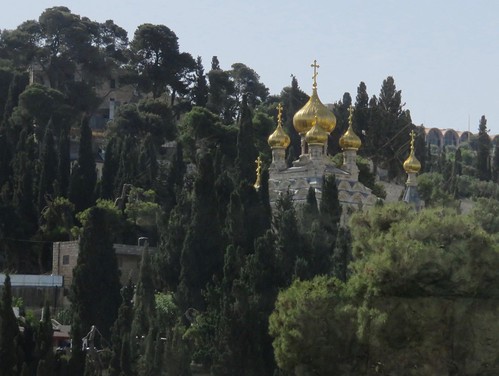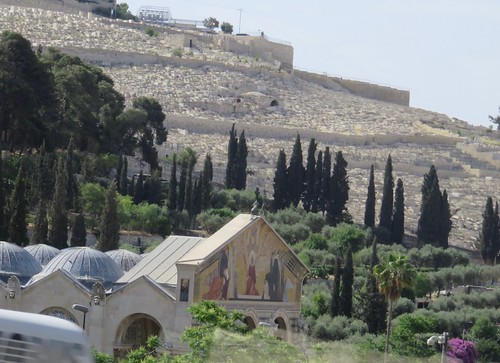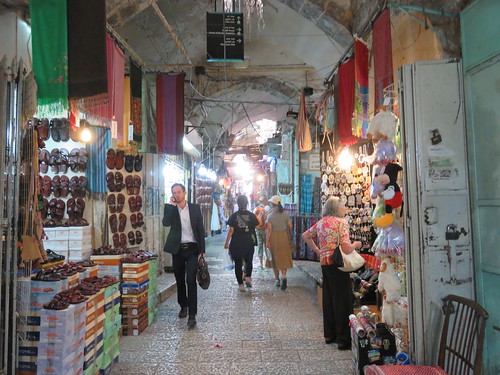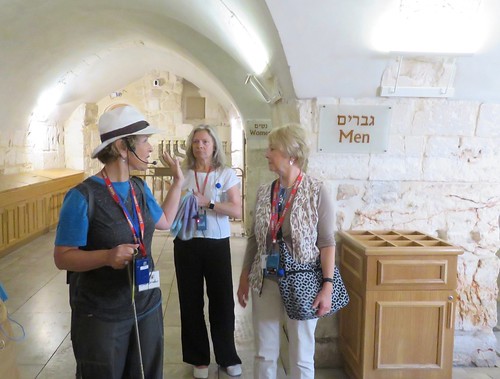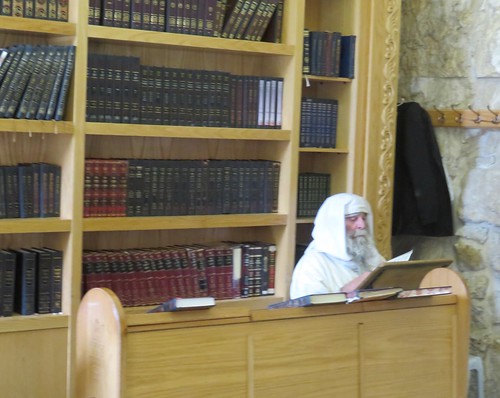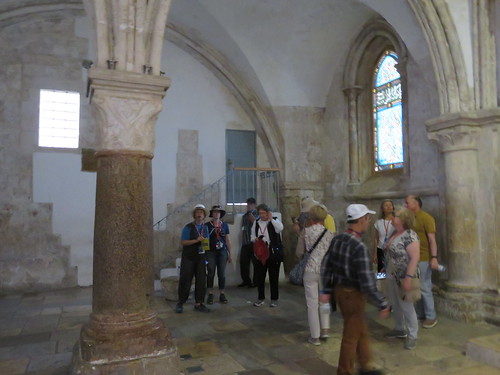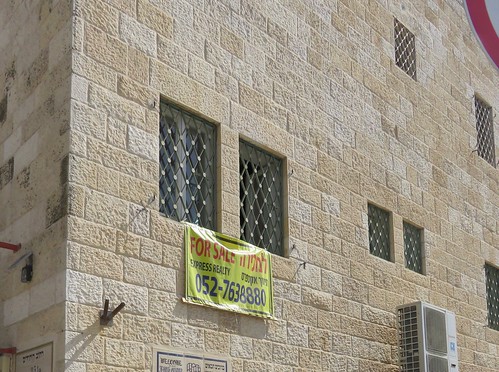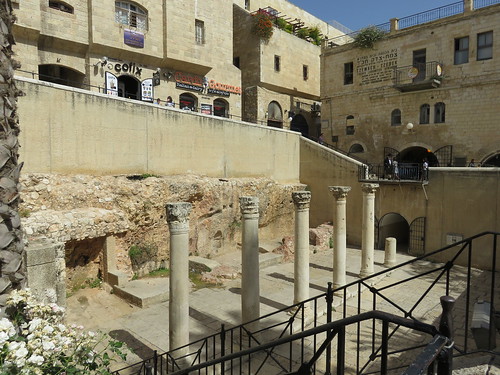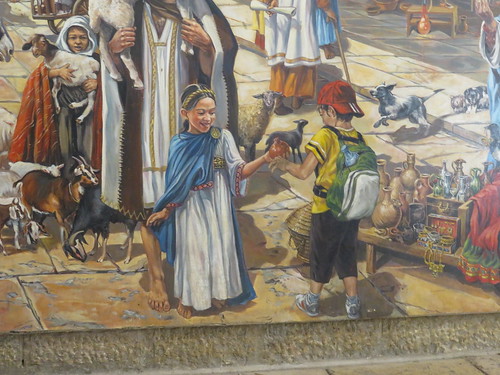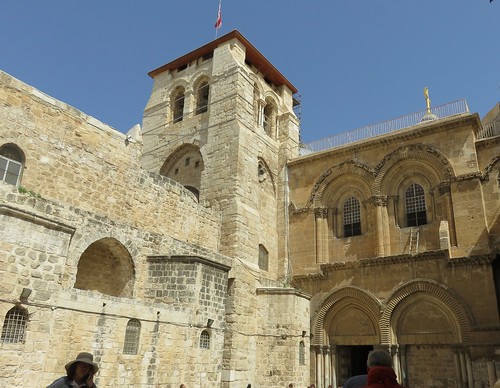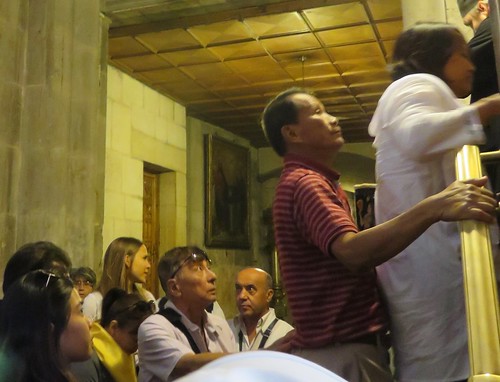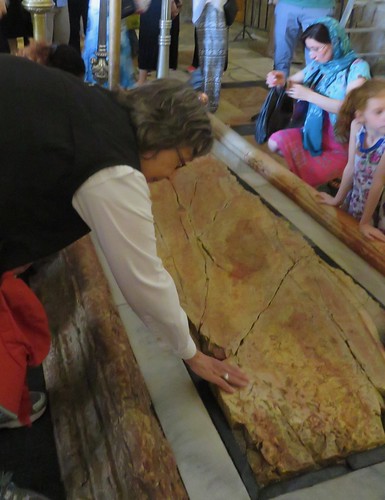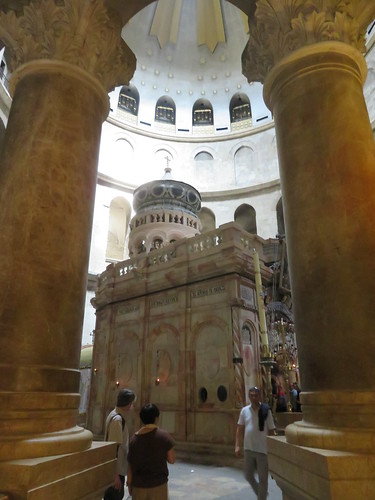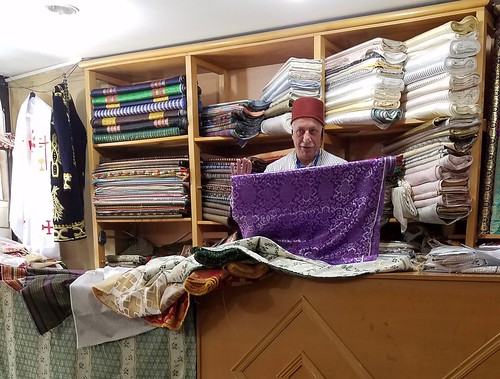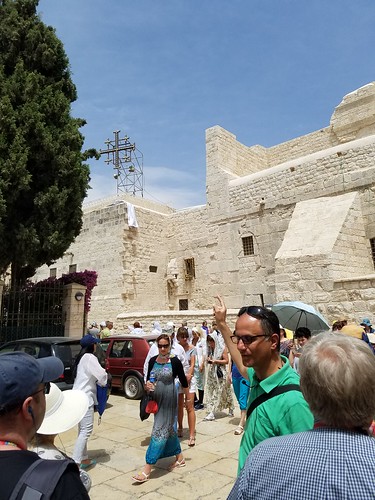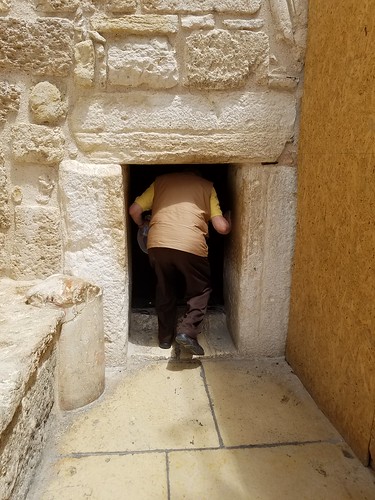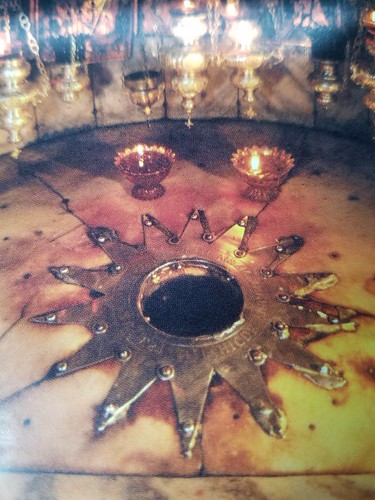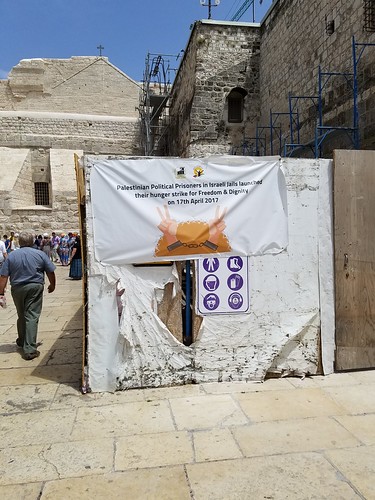Israel 2017–Day 9
Our bus circumnavigates the Old City’s walls, passing the Mount of Olives, with the garden of Gethsemane at its base, and the Jewish cemetery, every inch packed with graves from 3000 years ago to the present.
We’re left off at Jaffa Gate, the entrance to the Christian quarter, pass the Citadel that guards it and proceed carefully on the polished rock pavement of David Street, the covered market arcade that leads downward across town.
Gabi takes us on a series of stops at significant Biblical sites. First the gender-separated tomb of David, occupied by a few praying Haredi,
Next, the Room of the Last Supper,
then down to the Jewish Quarter, completely rebuilt since 1967 in keeping with requirements for maintaining the irregular and narrow streets and low buildings of the old city while modern in infrastructure, maintenance, and methods of marketing.
We pass the excavated ruins of the Cardo, the Roman pathway of columns adorned with a wall mural aptly depicting a contemporary child with baseball hat meeting an ancient girl with baby goats.
We track back to the Church of the Holy Sepulchre, the holiest site in the world for Christians since it houses both the rock of Golgotha, where Jesus was crucified, and the tomb where he is said to have been resurrected.
This church is a motley collection of structures, added onto and demolished for two millennia by various Christian sects including the three who have an uneasy arrangement to share jurisdiction today: Catholics, Armenians, and Greek Orthodox. Stairways ascend to galleries and upper chapels and descend deep underground to sanctuaries and shrines. In one area, a crane reaches 300 feet to the ceiling and large stone capitals sit in storage. But despite its sprawl over time and space, the building has a feel of overarching unity both inside and out.
It’s packed with people waiting to mount steep steps and crawl into a hole to kiss the rock on which the cross was mounted, to touch the marble shelf on which Jesus is said to have been anointed and to see the tomb covered by the Edicule, or marble shrine, that sits under the central dome.
The crowds surge everywhere and a group of the pilgrims waiting to enter the Edicule sing together in a language I don’t understand.
After lunch we proceed to the shop of a famous fabric merchant introduced by Gabi who provides silks and brocades for the vestments of the Jerusalem clergy of three religions and the Pope. He points out the fabric, the design and the sources of dozens of them”places with exotic names like Palmyra and Aleppo and Baghdad, now largely in ruins due to wars involving the USA and lately the Islamic State.
We decide to purchase a pillow case woven in Kashmir.
Jan has signed up for the optional tour to Bethlehem and the Church of the Nativity. Led by a Palestinian Christian guide, she travels by bus through East Jerusalem and a check point to the West Bank.
The Church of the Nativity has only one small doorway and was built over a cave (not a stable) that is venerated as the place of Jesus’s birth.
Bethlehem is a stronghold of Palestinian protest against annexation to Israel after the 6 day war in 1967.

